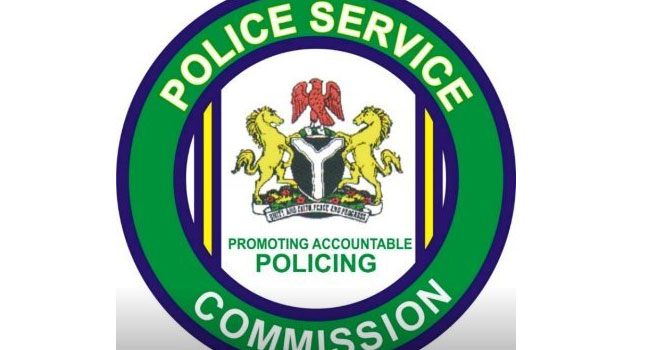The Police Service Commission (PSC) has cautioned against the leakage of sensitive official documents, revealing that it constitutes a felony with no defence available under either the Nigerian Constitution or the Act.
By Chimezie Godfrey
The Police Service Commission (PSC) has cautioned against the leakage of sensitive official documents, revealing that it constitutes a felony with no defence available under either the Nigerian Constitution or the Act.
This is contained in a statement signed by the Head, Press and Public Relations , Ikechukwu Ani made available to newsmen on Thursday in Abuja.
Ani stated that the second edition of the weekly ‘Arena of Knowledge ‘ lecture series of the Police Service Commission was held today, Wednesday, July 17th, 2024 with an x-ray of the implications of leaking classified information in Government Ministries, Departments and Agencies.
“The Arena of Knowledge lecture series is the brainchild of the Chairman of the Commission, DIG Hashimu Argungu rtd, and will be held weekly on Wednesdays. It is intended to promote learning and improve Knowledge of Government rules, regulations and day to day operations by Staff of the Commission.
“The Director, Human Resource management in the Commission, Aminu Malumfashi and Personal Assistant to the Chairman and former Commissioner of Police, Legal Services, CP Suleiman Balarabe Nayaya rtd, presented stimulating lectures on the topic.
“Mr. Malumfashi in his paper, traced the Freedom of Information Act of 2011 which granted Public access to government records and information but warned that while this Act promotes transparency “it does not override the government’s authority to protect classified information essential to national security” He noted that leaking classified information “is a separate matter governed by strict laws and regulations outside of the Act.”
“Mr. Malumfashi said unauthorised leakage of sensitive official documents constitutes a felony with no defence available under either the Nigerian Constitution or the Act.
“He observed that leaking classified information “carries far-reaching implications that span legal, ethical, political, security and Public dimensions” adding that while some view leaks as whistle blowing that exposes wrongdoing and promotes accountability; others argue that they pose serious threats,” he stated.
According to Ani, the Director explained that balancing transparency with the protection of sensitive information remains a complex challenge adding that “understanding this is crucial to achieve a harmonious balance in every organisation”.
He stated that CP Nayaya rtd in his own paper titled “Emergence Of Special Substantive Laws in the 21st Century on Safeguarding of Classified Information and Documents: Implications and Consequences of leakage” traced the possible ways to prevent leakage/divulge of classified information and documents and some of the likely consequences that may affect the defaulters.
“He also looked into exceptions to the Rights of Acess to Information in International Human Rights Treaties and Conventions.
“CP Nayaya rtd, identified proper recruitment of employees (vetting and background checks), adequate training and development systems, observation of process and procedures of principles of classification of classified information and documents and proper custody and care of classified information and documents amongst others.
“He mentioned interdiction, suspension, dismissal or jail term as some of the likely consequences that may affect defaulters,” he stated.
He added,”The retired CP legal Services noted that there are exceptions to the Right of Access to Information in the International Human Rights Treates and Conventions. These he said include respect of the rights or reputation of others; protection of national security of public order, public safety, public health and public morality.
“Others he noted, are preventing the disclosure of information received in confidence, or for maintaining the authority and impartiality of the Judiciary; prevention, investigation and presentation of criminal activities; disciplinary investigation etc.
“The Lecture Series continues next week Wednesday, July 24th 2024 with The serious issues of Cybercrime since 2015.”




